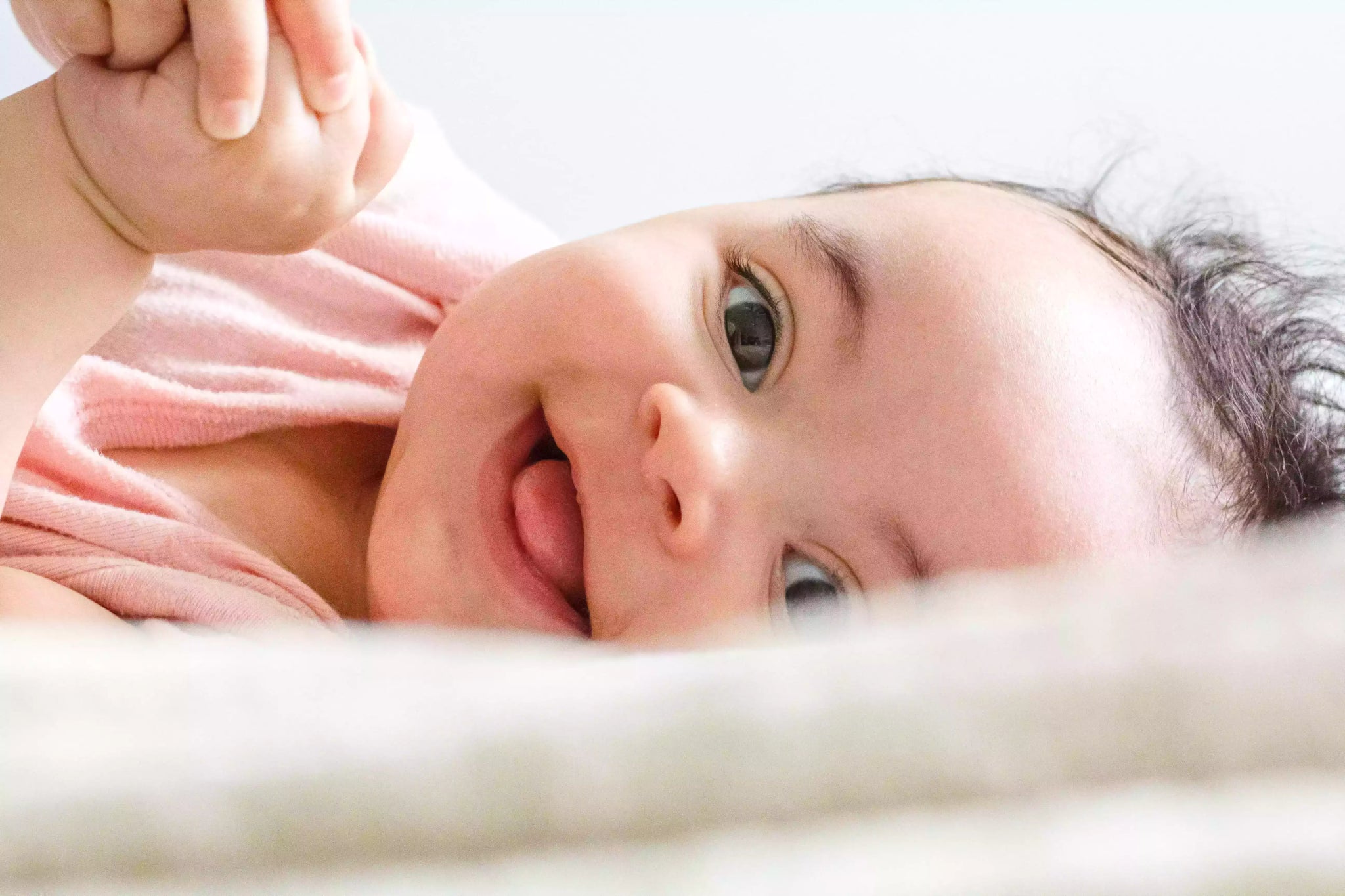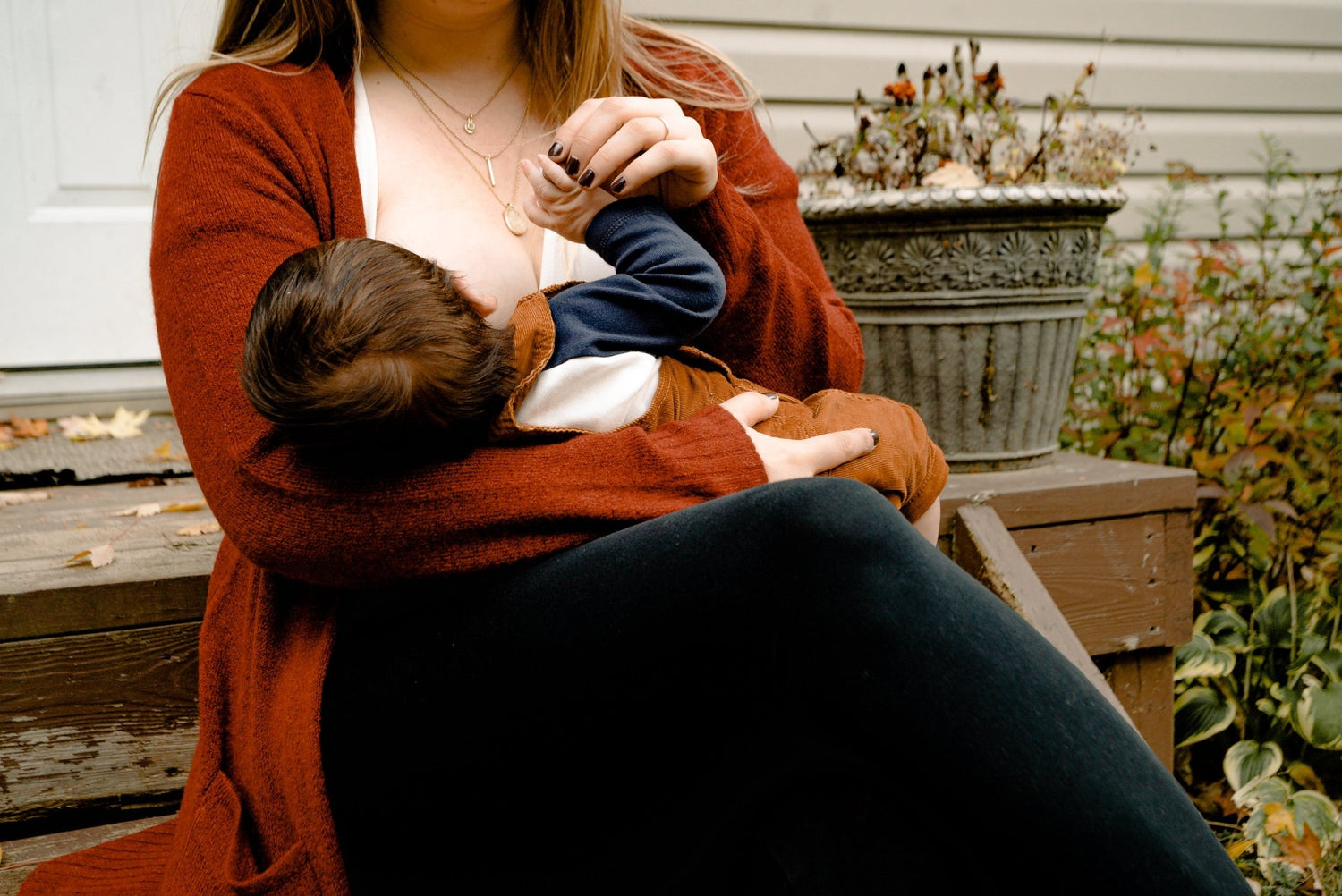Why do babies smile in their sleep: the angel smile explained
Babies are fascinating creatures that can take our hearts by storm. A particularly adorable and puzzling feature that many parents have observed is their babies' smiles while sleeping. This phenomenon, known as the "angel smile," raises questions and piques the interest of parents and researchers alike. Why do babies smile in their sleep? What's going on in their little heads? In this article, we'll take a closer look at the angelic smile and try to decipher the reasons and meaning behind this adorable behavior.
Table of contents:
|

1. What is the angel smile?
The angelic smile is a phenomenon in which babies display enchanting smiles while sleeping. It's a sight that melts parents and piques their curiosity. This smile often occurs in the first few months of a baby's life and is often interpreted as an expression of happiness, contentment and joy.
2. Why do babies smile when they sleep?
2.1 Laughter during sleep caused by unconscious muscle movements
Unconscious muscle movements are a natural part of babies' physical development. During sleep, babies may make uncontrolled muscle movements that appear as reflexes or involuntary reactions. These movements are often perceived as twitching, fidgeting, or even an angelic smile.
These unconscious muscle movements are part of the normal neurological development process of babies. As their nervous system develops, they gradually learn to control their muscles. The unconscious muscle movements are a kind of training for their muscles and help them develop strength and coordination.
It is important to understand that these muscle movements have nothing to do with conscious actions or expressions of emotion. They are not controlled by voluntary effort. Rather, they are part of the complex interplay of nerve impulses and muscle reactions in the baby's body.
The angelic smile that many parents observe on their sleeping babies may be due to such unconscious muscle movements. The baby can activate its facial muscles without consciously wanting to do so. This smile is often perceived as sweet and charming and brings joy to parents.
2.2 Laughter in sleep through dream activities
Although we cannot say with certainty what babies experience in their dreams, it is believed that they also dream in their sleep. During REM sleep, the phase in which dreams take place, various brain activities can be observed in babies. This can manifest as rapid eye movements, increased brain activity, and changes in heart and breathing rates.
It is believed that babies have positive and pleasant experiences in their dreams. This could explain why they smile or even laugh in their sleep. The angelic smile that many parents observe could be a reaction to these dream experiences.
2.3 Conscious laughter: development of the social smile
The development of social smiling in babies is an important step in their emotional and social development. From the beginning, babies are able to show basic facial expressions such as reflexive smiling, for example when sleeping, but over time they develop social smiling.
In the first few weeks, babies cannot smile consciously. However, they react to external stimuli such as touch or loud noises, which can result in a reflexive smile. This smile is not yet associated with emotions or social interaction.
Around the age of two to three months, babies begin to smile consciously and show social smiles. They react to the presence of familiar people, especially their parents, with a broad smile. This smile expresses joy, happiness and positive emotions. It also signals social interaction and a desire for attention and affection.
So social smiling plays an important role in the development of the bond between parents and children. It strengthens the emotional connection and mutual trust. Babies learn that their smiles elicit positive responses from parents, leading to more interaction and communication.
3. Does the angel smile have a special meaning?
Babies' angelic smiles can have a special meaning for many parents. Although there is no clear scientific explanation for the angel smile, it is often viewed as a magical moment. Here are some possible meanings that can be attributed to the angel smile:
-
Happiness and contentment: The angel smile is often interpreted as an expression of happiness and contentment. It can mean that the baby feels safe and secure and is experiencing positive emotions.
-
Bonding: The angelic smile can have a meaning that goes beyond the purely external. It can symbolize a connection between parents and baby and strengthen a deep bond between them.
-
Communication: The angel smile can be a form of non-verbal communication. By smiling, babies can show that they are aware of and want to interact with their surroundings.
Enjoy the moment: When you see your baby's angelic smile, take a moment to enjoy it. Let the magic of this moment work its magic on you and consciously take time to interact with your baby.




